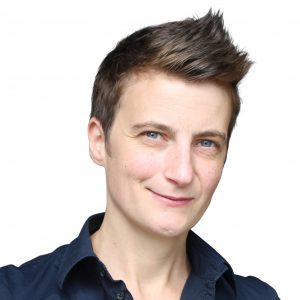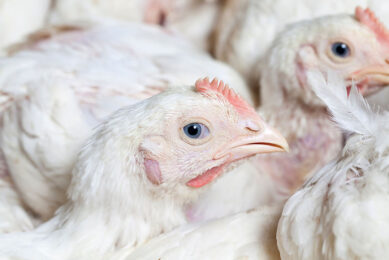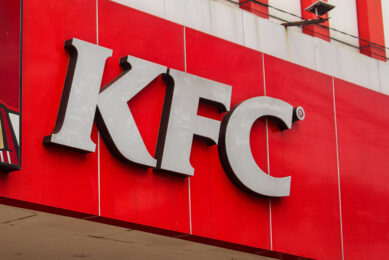Business update: Poultry investments continuing

New acquisitions, products, and investments have been announced in the international poultry scene recently. Where is the action? And what is there to look out for? This concise overview gets you up to date.
Aviagen invests €12m in Hungarian hatchery
Aviagen recently opened a new hatchery in Hungary to meet the growing demand for Ross parent stock (PS) in the region. The company invested €12 million in the new facility, which has a PS capacity of 10 million per annum, with room to expand by 20% in future. The new facility increases daily hatch figures from 45,000 to 70,000 chicks per day.
Aviagen worked closely with leading incubator and hatchery equipment specialists to incorporate the latest state-of-the-art technology in the new hatchery, which is strategically located close to GP farms and benefits from strong infrastructure and transportation links as well as excellent health and biosecurity standards. Balázs Takács said: “The investment in the hatchery at Mezőörs is evidence of the popularity and success of Ross products in the Central and Eastern European region. This new facility enables us to serve our expanding parent stock customer base and also offers us the flexibility to grow in line with increasing demand in the future.”
Pronavicola’s Colombian hatchery expansion continues
Columbian poultry group Pronavicola has completed the second phase of its major hatchery upgrade and expansion programme in Buga, western Colombia, with the installation of SmartPro single stage hatchery technologies and a SmartCenterPro automated hatchery information system from Pas Reform.
Pronavicola, the first hatchery in Colombia to adopt single-stage incubation technologies, has earned a reputation for innovation through technology in the country’s poultry sector since it was founded in 1982. The hatchery now targets a total weekly capacity of 800,000 day-old broiler chicks per week.
Emka Incubators to supply Ukrainian poultry integrator
The largest poultry integrator in Ukraine, Mironovsky Hliboprodukt, has chosen to trust Emka Incubators for its latest project. The initial first stage will be delivered by mid-2017. Bezhynets Vasyl, director of production department, decided to go with Emka Incubators because of the cooling system, Teggnologic27, that is able to achieve superior uniform chick quality through a ‘Dry Hatch’ and the ‘DECS’ cooling and spraying system.
The Dry Hatch improves the drying time of the newly hatched chicks resulting in faster closed navels and a healthier start to life while running the cooling water at a temperature of 27°C. This temperature is above the dew point, which means no condensation in the incubator. No condensation drives for a perfect humidity, temperature and ventilation control while reducing any possibility of mould, bacteria or fungal development.
Ceva introduces new IBV vaccine
A new live monovalent vaccine is available from Ceva Animal Health to aid in the fight against the Georgia (GA) strains of infectious bronchitis virus (IBV). Cevac IBron is the first and only licensed product in the market effective in combating multiple variants of IBV. Ceva already offers vaccines to protect against the Massachusetts, Arkansas and Connecticut serotypes of IBV. The product is recommended for use in healthy chickens one day of age or older.
The IBV virus is characterised by its capacity to continually mutate. Emerging variants of the virus require poultry producers to stay vigilant and adapt vaccine regimens to prevent and combat outbreaks. Prior to the licensure of Cevac IBron, outbreaks of IBV caused increased mortality and condemnation in broiler farms. IBV is highly contagious and causes economic losses world-wide due to poor weight gains and decreased egg production.
Cobb looking forward to the next 100 years
After 12 months of celebrations of the first 100 years of Cobb, the company is now looking ahead to increasing investment to grow in markets across the world. This confidence in the future was reflected in the Cobb-Vantress, Inc. booth at the IPPE show in Atlanta, Georgia, where the company was exhibiting for the 61st time.

Joel Sappenfield, who attended the show for first time as Cobb president, has more than 25 years of experience in poultry. He was delighted to meet customers not just from North America but many of the other 120 countries where the Cobb breed is supplied. “Having celebrated our centennial in 2016, we are excited and ready for the next 100 years. Our continued commitment to research and development, as well as our investment in expanding our facilities and supply chain globally will lead the way toward a successful future.”
Tyson to stop use of all antibiotics
The largest chicken producer in the US, Tyson Foods, will eliminate the use of all antibiotics in fresh and frozen chicken products bearing the company name, according to media reports. The switch to chickens raised without any antibiotics will occur in June, Reuters reported.
The company had previously announced, in 2015, that it would eliminate the use of all antibiotics used in human medicine from its US broiler chicken flocks by September 2017. This move takes the company’s commitment to antibiotic-free chicken one step further. Tyson CEO Tom Hayes told the Wall Street Journal that the move will make the company the world’s largest supplier of poultry raised without antibiotics.
Cal-Maine Foods to acquire assets of Happy Hen Egg Farms
US egg producer, Cal-Maine Foods, has reached a definitive agreement to acquire substantially all of the assets of Happy Hen Egg Farms, relating to their commercial production, processing, distribution and sale of shell eggs business. The assets to be acquired, subject to the completion of this transaction, include commercial egg production and processing facilities with current capacity for approximately 350,000 laying hens and related distribution facilities located near Harwood and Wharton, Texas.
Dolph Baker, chairman, president and chief executive officer of Cal-Maine Foods, said, “Located near our other Texas locations, Happy Hen Egg Farms’ current site is designed for capacity of up to 1.2 million laying hens, and we intend to capitalise on specific market opportunities created by this additional production capacity.”













